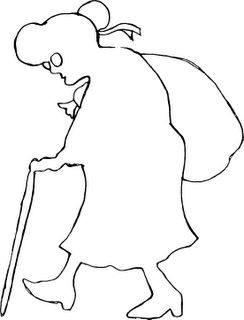Other writers have pointed out that both sides had excellent counsel who made their arguments well, in the proper venues, and appeals courts ever since have upheld the decisions. So the Schindlers took their case to the Court of Public Opinion. Issues like this can, and ought to be, debated by the public. Media can, and should, report on these issues. But it only serves the public if people understand the limitations of the Court of Public Opinion. Both sides have been able to make assertions, counter-assertions, and denials that wouldn’t be permitted as evidence in a court of law. People like the Chicago Tribune’s John Kass say things like:If you’ve read the trial court’s original decision regarding Terri’s wishes, then you know the court considered five persons’ testimony of what Terri supposedly said to them about what she wanted. That’s the supposedly inadmissible hearsay. Some say it shouldn’t have been admitted. Others say it can’t amount to clear and convincing evidence. “It’s not in writing!” they say, as if writings aren’t hearsay, or that a writing would eliminate any controversy…. Courts generally employ rules of evidence during trials, and a well known rule of evidence holds that hearsay is admissible to prove something only in limited circumstances. Under Florida law, there are about 30 or so such circumstances. You could say that one of them applies here, such as the exception for statements describing the declarant’s then-existing state of mind. You could also say that Terri’s statements were not hearsay, since they were offered to prove she said those words, not to prove that what she said was true. Hearsay is an out of court assertion offered to prove the truth of the matter asserted. Those are evidentiary reasons why the testimony was admissible. There’s a better reason. A constitutional reason. Terri had, and every Florida citizen has, a constitutional right to privacy that includes the right to decide that certain medical treatments should not be used to prolong her life. The Florida Supreme Court has clearly decided that this right can be exercised through written and oral statements.
What’s happening to Schiavo suggests that Americans have finally been taught to think like bureaucrats. Bureaucrats cover their flanks with e-mail and send copies to others to establish positions. They almost say what a thing is, but not outright, not exactly. The bureaucrat embraces the neutral and avoids conflict. And we’ve allowed this. We’ve embraced the values of the bureaucrat, of the manager, and replaced those older, iconic Western values of self-reliance, accepting responsibility and meeting things head on. One of these values--albeit ignored through countless wars and cruelties--is that human life is sacred. But now we are about process. Now we are about avoiding consequence. We’re about keeping our hands clean, and we use words to scrub them. Terry Schiavo is starving to death now because the machinery of the government, otherwise known as the state, has decreed that she will be starved to death. As she has been denied food and water, the state stands over her husband’s shoulder and nods assent.Is this really what’s happening? Terri’s case has wound its way through the court system for years, with a consistent response. If either side’s counsel hadn’t been doing a good job of representation, I’m betting a lawsuit for legal malpractice would have been filed long ago. Other things are at issue. First, for Terri’s parents: appeals court is not a “do-over.” You don’t keep hammering away until you get the answer you want. Sometimes the answer is no. And that doesn’t always make it wrong, or immoral, or evil. Whatever one may think about Michael Schiavo, it really is possible that he has Terri’s best interests at heart. Maybe he finally had closure when the medical liability lawsuit was over. Maybe it took that lawsuit for him to come to terms with the situation. Can you really know? Maybe it took Terri’s father asking Michael to give them some of the money for Michael to grasp that Terri’s parents’ motives weren’t pure, either (gasp!). Maybe it was only then that he realized that their denial over the cause of her collapse would never be broken down. Second: What would the Schindlers’ response have been, had Terri actually executed a living will that stated what Michael has been asserting all along? Down to the request for cremation rather than burial? Would they have been able to accept her break with the Catholic faith they are so sure she held? I’ve known a number of parents who aren’t very good at accepting the fact that their offspring might hold different values. As long as speculation is being accepted in the Court of Public Opinion, I feel a need to raise that issue. Unless only some speculation is acceptable and I haven’t received the memo outlining exactly what is acceptable. As long as I’m busy speculating, I may as well add that I wonder what will happen to the Schindlers’ relationship once Terri dies. This kind of stress does damage to some relationships, but sometimes it’s the only thing holding a relationship together. Third: Appeals courts rarely hear a case de novo (literally, anew). And they don’t often sit en banc (the entire court), either. So because both of those requests have been rejected doesn’t mean that the Schindlers are being singled out for injustice. The “merits of the case” have been debated ad nauseum, and I doubt there’s a consensus to which we can all come. So I think it’s a good thing that most people in this country are allowed to deal with end-of-life issues without requiring the consensus of the country or approval of President and Congress. That’s what our “bureaucratic” system (according to Kass) provides for us. And that’s the way it should stay.
